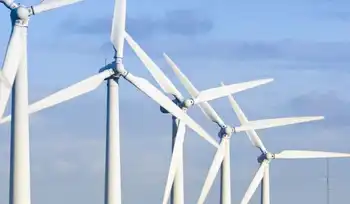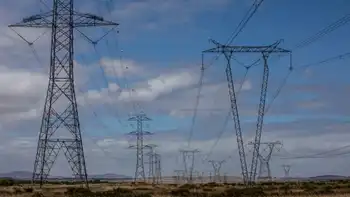Make room, cable and DSL: High-speed Internet service via power lines is becoming a reality
Small trials using power lines to deliver broadband Internet access have popped up around the country, serving consumers who don't have access to cable or a telephone line for DSL (such as the growing number of people who use cell phones instead of conventional phone service). Power companies, partnering with Internet providers, last month began servicing residents in suburban Pittsburgh and small swaths of Michigan. A broadband power-line provider called Current Communications Group LLC just cinched a $150 million, 10-year deal with TXU Electric Delivery to deliver service to as many as 2 million Texans.
An investment team made up of Google, Goldman Sachs Group, and Liberty Associated Partners raised an estimated $100 million for Current earlier this year.
The big IT companies are involved, too. Cisco Systems' Linksys division makes broadband power-line modems, IBM has partnered with a Houston utility company to develop services, and Internet service provider EarthLink plans small trials of the service next year. Research firm Telecom Trends International predicts that broadband power-line revenue could reach $4.4 billion by 2011, up from 2004's $57.1 million.
Current Communications sells service up to 3 Mbps, hoping to eventually increase to 25 Mbps. The company plans "triple-play" services and will launch voice-over-IP services via power lines in Cincinnati in February and branch into video in coming years, Current VP Jay Birnbaum says. "This technology in the course of the next five or 10 years is going to be able to compete on par with cable, DSL, and the other guys," Birnbaum says.
Lingering issues could muddy things for providers. Amateur-radio operators, a particularly vocal force, have long argued power-line broadband interferes with radio signals, and new FCC rules require broadband power-line systems to be able to filter frequencies where interference occurs and shut down remotely to resolve interference. Also, electric noise on the wires can degrade IP signals, but providers say new technologies are helping them better control that problem.
Related News

Ontario’s Electricity Future: Balancing Demand and Emissions
Ontario's electricity sector stands at a pivotal crossroads. Once a leader in clean energy, the province now faces the dual challenge of meeting surging demand while adhering to stringent greenhouse gas (GHG) reduction targets. Recent developments, including the expansion of natural gas infrastructure and proposed federal regulations, have intensified debates about the future of Ontario's energy landscape.
Rising Demand and the Need for Expansion
Ontario's electricity demand is projected to increase by 75% by 2050, equivalent to adding four and a half cities the size of Toronto to the grid. This surge is driven by…





